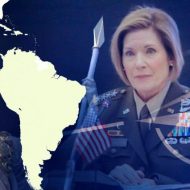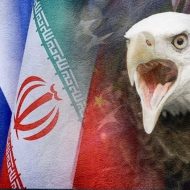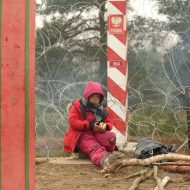The elections in Türkiye, like in the rest of the world, are closely monitored in China as well. According to Professor Shen Zhinxing, the Western world perceives Türkiye under the leadership of Erdoğan as “disobedient.” According to Prof. Shen, if Kılıçdaroğlu is elected as President, political tensions may arise between Türkiye and China, as well as Russia.
Countdown continues for the second round of the presidential race. The results of the elections, which will take place on Sunday, May 28th, may bring about a new equation in international relations. The candidates of the People’s Alliance and the Nation Alliance draw attention with their different foreign policy visions. While President Recep Tayyip Erdoğan, who does not take part in the sanctions on Russia and openly expresses his desire to join Asia-centered organizations such as the Shanghai Cooperation Organization (SCO), is associated with a “balance policy,” Kemal Kılıçdaroğlu, the candidate of the Nation Alliance, sends messages that Ankara could turn more towards the West.
One of the prominent figures closely following the elections in Türkiye is Professor Shen Zhixing, the Director of the Türkiye Research Center at Zhejiang International Studies University in China. Professor Shen Zhixing answered CRI Turk’s questions on a wide range of topics, from the results of the first round of elections to the possible foreign policies that Türkiye could pursue. We present this remarkable interview to our readers:
In the May 14th elections in Türkiye, there was much discussion about which leader was supported by countries such as the US, Russia and China. Did China lean towards any candidate before the elections? How do you evaluate the systematic negative coverage on President Erdoğan by Western media?
China, as a state, remains neutral. We never interfere in such matters because one of the principles we follow is not to meddle in the internal affairs of others. Regardless of who wins the election, it is the choice of the Turkish people. What we hope for is the preservation of China-Türkiye friendship. President Erdoğan has been in power for 20 years. During his term there have been both collaborations and disputes with the West. Especially in the Russia-Ukraine conflict, Türkiye did not side of the West and instead sought to be a mediator. In the eyes of the West, Türkiye has become increasingly disobedient. In recent years, Türkiye’s economy has also faced difficulties, which could be seen as an opportunity by the West. In other words, the West might expect a new leader from Türkiye and with this new leader a new Türkiye-West relationship might emerge.
In the May 14th elections, the AK Party secured a majority in parliament, while President Recep Tayyip Erdoğan was the frontrunner in the first round. However, nationalist parties also increased their votes. How do you interpret the rise of nationalism in Türkiye?
In my opinion, this rise in nationalism is a result of the issues of terrorism and refugees. These two issues have brought many problems to Turkish society in terms of stability and employment. The harsh stance of nationalist parties has won the hearts of voters, but it may also create social divisions. It could create a contrast between Turks and minorities/migrants. However, it will probably not get to the point of racism.
In case Kılıçdaroğlu wins: Relations might deteriorate
How you evaluate the scenarios both of Erdoğan and Kılıçdaroğlu winning in the second round? What will Türkiye-West relations evolve into?
Under Erdoğan’s leadership, Türkiye may become even more independent. Türkiye has been unable to become a member of the EU for a long time, and it seems unlikely to happen in the future. The world continues to be multipolar, and Türkiye is striving to become a new pole. It is difficult for the West to reach an internal consensus. Together with the West’s withdrawal from West Asia in the last years, the region has taken a path towards peace.
Therefore, Türkiye will maintain a balance policy between the West and the East and become more independent in global affairs. If the Nation Alliance comes to power, initially Kemal Kılıçdaroğlu might turn towards the West. Türkiye’s relations with Russia and China may deteriorate. This situation can be very damaging for Türkiye because the West cannot fully meet Türkiye’s demands. Türkiye could pay a heavy price in such a scenario. Afterwards, Türkiye might once again take an independent path because it is the most profitable.
Türkiye will not be able to get what it wants from the West
The future of Türkiye-China relations is being wondered as well. How do you evaluate their future?
We see that political relations between Türkiye and China have been quite good in recent years. Our leaders frequently meet, support each other, and increase cooperation. Hopefully, this will continue. If Mr. Erdoğan wins the election, Türkiye will continue to maintain a kind of balance between the West and the East for its own interests. The Türkiye-China relationship will progress steadily. China’s influence in the world is increasing day by day, while Türkiye is unable to become an EU member. Thus, Türkiye aimed to become a member of the Shanghai Cooperation Organization (SCO) and the BRICS organization in order to elevate its position in the world. By harmonizing the Belt and Road Initiative with the Middle Corridor project, Türkiye can achieve significant strategic gains. If Mr. Kemal Kılıçdaroğlu wins the election and does as he said, Türkiye will initially turn towards the West, and the Xinjiang issue could lead to disputes between the two countries. This can be harmful to the relations. However, as mentioned before, Türkiye may turn to the East because it cannot get what it wants from the West. Mr. Kemal Kılıçdaroğlu has also put forward a project to revive the historical Silk Road. The political ties between Türkiye and can go through recession, but economical ones. If there is a problem in Türkiye-China trade relations, the Turkish economy could worsen.
Trade should be complementary
This year marks the 10th anniversary of the Belt and Road Initiative. Türkiye is also among the natural partners of the Initiative. However, some experts in Türkiye argue that China’s investments in Türkiye are not at the desired level. Do you agree with these claims? Is it possible that China increases its investments in Türkiye in the future and offer greater opportunities to Türkiye?
We know that there is a significant gap between Türkiye’s imports and exports in Türkiye-China trade relations. Last year, Türkiye’s exports to China amounted to $452 million, while imports stood at $34.03 billion, in a total trade volume of $38.55 billion. Türkiye aims to reduce or even close this gap with China’s investments in Türkiye. This could be a solution, but in my opinion, the most critical point is as follows: the complementarity between the two countries in trade is low. It means that “the goods I want are not available in your country, but the goods you want to sell are already available in my country.”
The two countries compete in many areas. The best solution is to restructure the economic system and produce products that meet the needs. I am not an expert on this matter, so what I said may not be entirely accurate. Secondly, as far as I know, many Chinese companies want to go to Türkiye, have concerns. These companies do not know much about Türkiye. They have concerns about whether Türkiye is safe, what the trade laws are, and whether there are facilities for investments. China’s investments in Türkiye may increase. In short, Türkiye needs to be better promoted in China.









Leave a Reply